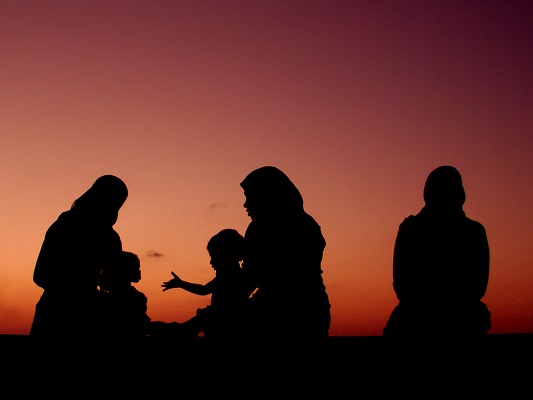
Today, I was thinking about how every Muslim woman is made to think that marriages necessarily demand from them a complete change into a new person. Our culture has played on us so well that we accept that happy marriage can be achieved only through great sacrifices and complete abundance of your previous life. I don’t think everyone will agree on this notion. Muslim daughter-in-laws are seen as patrons of change, sacrifices, and duties the moment they enter the wedlock. This is one of the biggest reasons that Muslim to-be-brides feel a lot of pressure and anxiety before their Nikah.
However, if we look closer Allah made Nikaha Sunnah so that a boy and girl can lead a happy and pious life. So, all these cultural notions and traditional norms are responsible for building pressure on Muslim daughters-in-law. Let us read further to erase the misconceptions regarding the duties of a Muslim daughter-in-law.
- Muslim daughters-in-law are not obliged to take care of the whole family of her in-laws. If she looks after them and cooks for them, it is out of her courtesy and generosity. It is completely wrong to burden a married woman and blame her if she is unable to do the same.
- In-laws are not bestowed with the right to grant permissions to daughter-in-law regarding how to dress, how to cook, how to behave, where and when to go. Wife is supposed to seek permission only from his husband because his consent matters the most. It is the sole responsibility of the husband to guide his wife towards the desired behavior.
- Meddling in the lives of husband and wife by in-laws is considered very normal in many cultures. However, this violates the privacy of a couple and ruins their understanding of each other. It is expected from the in-laws to be less nosey and more patient so that husband and wife can resolve the misunderstandings on their own.
- Muslim daughters-in-law are considered as very wicked if they demand a separate house of her family. Under Islamic Shariyah, it is purely the right of a wife to demand from his husband to have a separate home. It can be near or far from the parent’s home which is less of a concern. If she is doing it to provide a better environment to her children, then the husband with his capabilities should do so.
These are some of the misguided duties related to daughter-in-law. To all my sisters, who are burdening themselves with the undue load of responsibilities; fret not because Allah will grant you a special status in paradise. Sisters who choose to serve their in-laws with love, care, and attention deserves a special place in Jannah. This does not mean we should not educate our Muslim societies about the righteous duties of Muslim daughter-in-law under Islamic guidance. The more we share this, the more we spread awareness about it. Let us do it together.
